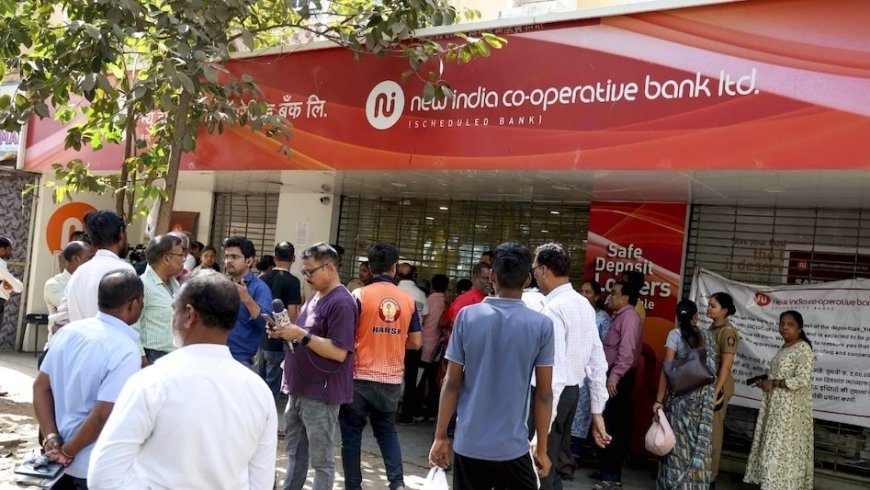Is your money safe in co-operative banks safe? RBI's latest curbs raise concern
Is your money safe in cooperative banks safe RBIs latest curbs raise concern

Is Your Money Safe in Co-operative Banks? RBI's Latest Curbs Raise Concern
News by dharmyuddh.com
Understanding Co-operative Banks
Co-operative banks play a vital role in India's banking ecosystem. They function on a co-operative model, aiming to promote socio-economic development among their members. While these banks offer services similar to commercial banks, they often cater to local communities and target specific demographics. However, recent guidelines from the Reserve Bank of India (RBI) have sparked concerns over the safety of deposits in these institutions.
Recent RBI Curbs and Their Implications
The RBI has introduced a series of curbs aimed at co-operative banks to maintain financial stability and protect depositors. These new regulations include stricter capital requirements, restrictions on lending practices, and increased scrutiny over financial operations. For depositors, these measures raise critical questions about the safety of their funds in co-operative banks. The RBI's intention is to strengthen the banking sector, but are these curbs creating more anxiety among the consumers?
Analyzing the Safety of Your Deposits
When it comes to the safety of money in co-operative banks, several factors come into play. The deposit insurance provided by the Deposit Insurance and Credit Guarantee Corporation (DICGC) offers some reassurance, as it insures deposits up to ₹5 lakh per depositor per bank. However, with co-operative banks often facing liquidity issues, the question arises—are these safety nets enough to safeguard your financial interests in times of crisis?
Expert Opinions on Co-operative Bank Safety
Financial experts suggest that while co-operative banks can offer attractive interest rates, the risks associated with them can't be overlooked. They advise potential depositors to conduct due diligence before investing their money. Evaluating a bank’s financial health, understanding its governance structure, and reviewing its operational history could help mitigate risks.
What Should Depositors Do?
Amidst the uncertainty surrounding co-operative banks, depositors are encouraged to diversify their investments. Spreading your funds across different types of financial institutions can provide an additional layer of safety. Moreover, staying informed about RBI guidelines and maintaining regular communication with your bank can ensure that you are aware of any changes that might impact your deposits.
Conclusion
While co-operative banks offer unique benefits to their members, the RBI's latest curbs have undoubtedly raised concerns about the safety of deposits. As a cautious depositor, it’s crucial to be informed and proactive about your financial choices. Always prioritize institutions that have a transparent operational structure and maintain a solid financial standing.
For more updates, visit dharmyuddh.com Keywords: co-operative banks safety, RBI curbs on banks, money safety in co-operative banks, deposit insurance DICGC, financial health co-operative banks, risks of co-operative banks, investment safety in India, banking regulations in India, depositors guide to banks, understanding co-operative banking risks







